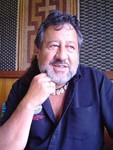Speech: Promoting Maori business on a global scale
Launch of Koha On-line Maori business magazine.
Tena koutou katoa.
E te whare – me ki, te Whare Tauhokohoko [Chamber of Commerce] – tena koutou.
Ki oku hoa Minita – te Honore Rawiri Carter, te Honore Timoti Groser, te Honore Pani Wong, tena koutou.
Ki a FOMANA, no koutou te kaupapa o te po, tena koutou.
Ki to koutou ropu matua, ki a FOMA, koutou ko nga manuhiri tuarangi, nga iwi kua tae mai ki te whakanui i te po, tena koutou katoa.
This thing we are launching tonight, Koha, is not something you can touch or hold, unless it’s been printed out.
It is a cyber-mag. You could say it truly belongs in the realm of Rangi – from where all knowledge descended, according to our traditions.
Without getting too esoteric, this is an appropriate way to think of matauranga, and communication – mai i te rangi ki te whenua.
We may be tangata whenua – people of the land – but our history is one of exploration and migration beyond the visible horizon. We have always looked to the heavens for guidance and direction, as our ancestors voyaged from Hawaiki (which modern scientists tell us used to be somewhere in China), right across the vast Moana Nui a Kiwa, and into the unknown future.
To this day, our interests span the globe. We share and exchange culture, knowledge and ideas (not to mention bloodlines) with peoples in every corner of the world. We are quintessentially trading peoples.
So our ancestors have always recognised the value of matauranga. Our iwi jealously guarded their control over their distinctive art and design, ancestral traditions and knowledge of all kinds.
Almost every Maori in the room must have had some dealings with the WAI 262 claim. It was formulated as a claim for rights in respect of iconic indigenous species, our natural heritage.
But over the decades (yes decades) of legal proceedings and hearings and analysis, it has come to be seen to encompass our cultural heritage as well – our matauranga.
WAI 262 seeks recognition of our rights to control our own matauranga.
This visionary claim foreshadowed global interest in our intellectual property, secured by international agreements on copyright and patent laws which commodify and alienate matauranga.
At this point, Moana Maniapoto cannot market her music under her own name, because a German businessman patented it first. And while the All Blacks profit hugely from the branding of the haka, the descendants of Te Rauparaha have no special claim in law.
How can we trade, if all our taonga are owned by others?
So iwi Maori have invested heavily in efforts to secure our own rights, locally, nationally and internationally.
Indigenous peoples world-wide, led by Ngati Awa, asserted their cultural and intellectual property rights through the Mataatua Declaration – an act of international diplomacy that tangata whenua took on their own initiative.
The refusal of the previous government to sign the UN Declaration on the Rights of Indigenous Peoples was a huge set-back.
Once again, indigenous peoples around the world took their own initiative to set up the United League of Indigenous Nations, as a global forum where our status is not an issue. Their charter hangs in my office.
The UN Declaration on Indigenous Rights is something we can revisit. And we must, because full recognition of our status as indigenous people underpins all our other rights, including property rights.
I am pleased to hear news that Australia’s new government is reconsidering its position. I believe that, with our new government, we have entered a new era of race relations in Aotearoa.
The Maori Party has stated its support for the Declaration. I have also been making representations to relevant Ministers that New Zealand give unqualified endorsement to the Declaration, and sign up as soon as possible.
Meanwhile, we must make the most of every opportunity to advance our people.
The Maori economy has been booming in recent years. Our asset base is over $16 billion. The modern Maori economy is weighted towards exports.
I am planning to attend the Indigenous Economic Development Conference in Melbourne in May, to strengthen ties with Koori business people.
In 2010 there is the Shanghai Expo, an excellent opportunity to showcase Maori products and services to 70 million visitors and potential partners. These are networking opportunities not to be missed.
As tangata whenua, we must look beyond the bottom line, to the broad horizon. Let’s remember that our success might inspire other indigenous peoples to reach for the sky.
FOMANA itself is a step forward by Maori into global trade, which Te Puni Kokiri has strongly supported. ‘Koha’ is your flagship – or perhaps, a cyber-waka, carrying a precious cargo of matauranga Maori into unknown territory. It is a vehicle to bring people together, to trade.
I have spoken before of the ‘Maori edge’ in business:
- resilience and flexibility
- inherent and acquired trading capability
- an emphasis on relationships and long-term perspective
- curiosity and a willingness to innovate and diversify
- uniqueness and freshness, and
- ability to work across cultures.
This matauranga is vital to successful business – in good times and bad. We can leverage off it.
It is part of our contribution – our Koha - to the nation, and the world.
So I congratulate FOMA and FOMANA Capital Ltd for this new venture into cyberspace, and wish you well
No reira hoea te waka!
Ko te pae tawhiti, whaia kia tata. Ko te pae tata, whakamaua kia tina!
Hui e … Taiki e!
